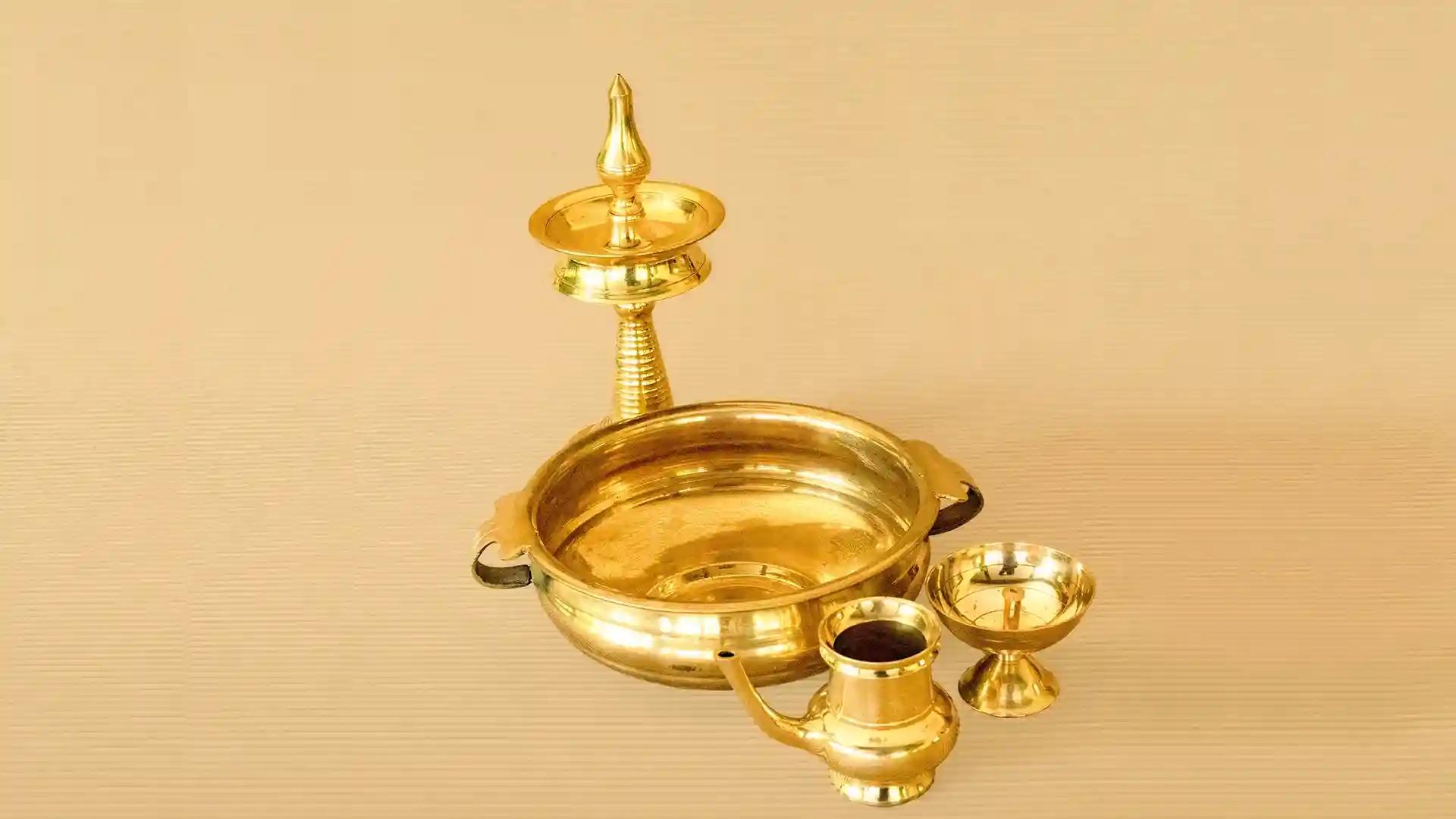
Bronze Wares

Bronze Wares
Historically, bronze, locally known as 'Odu.' has played a significant role in Kerala's households, where it is This metal is most famously seen in the lamps that are present in almost every Malayali residence. Huge wick lamps of different sizes and shapes, like the Nilavilakku, have become synonymous with the state of Kerala. Beyond lamps, bronze is also used in the manufacture of various vessels, both big and small. In the kitchens across God's Own Country, bronze ware utensils were once ubiquitous.
Bronze holds extreme importance for religious symbols in Kerala. The Valkannadi, meaning "tailed mirror," represents Lakshmi, the Goddess of Prosperity. Other pooja (worship) articles, such as the kindi (a water container with a sprouting nozzle), uruli (a wide shallow cooking vessel), and Thattu (plates), are beautifully crafted in bronze. These original items are extremely expensive and are often found adorning antique or curio shops. Skilled craftsmen create everything from utensils to idols of gods in bronze, making them major attractions for those seeking traditional artifacts. Bronze items also have a resale value that makes them highly sought after.
The craftsmanship of bronze ware is a tradition followed by certain families across different regions of Kerala. North Kerala, in particular, is home to many places that still cast bronze. Notable among these are Payyannur and Kunhimangalam in Kannur, Irinjalakuda in Thrissur, and Pallippuram in Palakkad, which are famous for their skilled artisans and their expertise in bronze casting. This rich heritage of bronze craftsmanship continues to be an integral part of Kerala's cultural and artistic identity.
Also, do not miss out on these